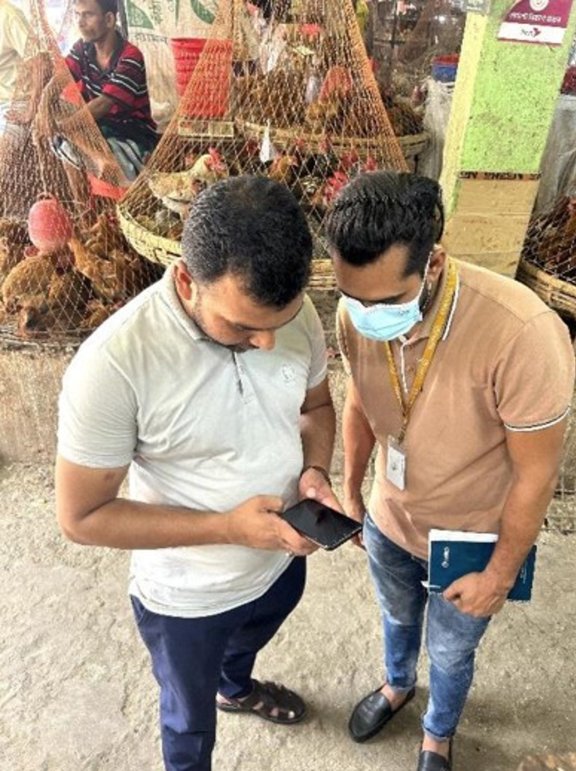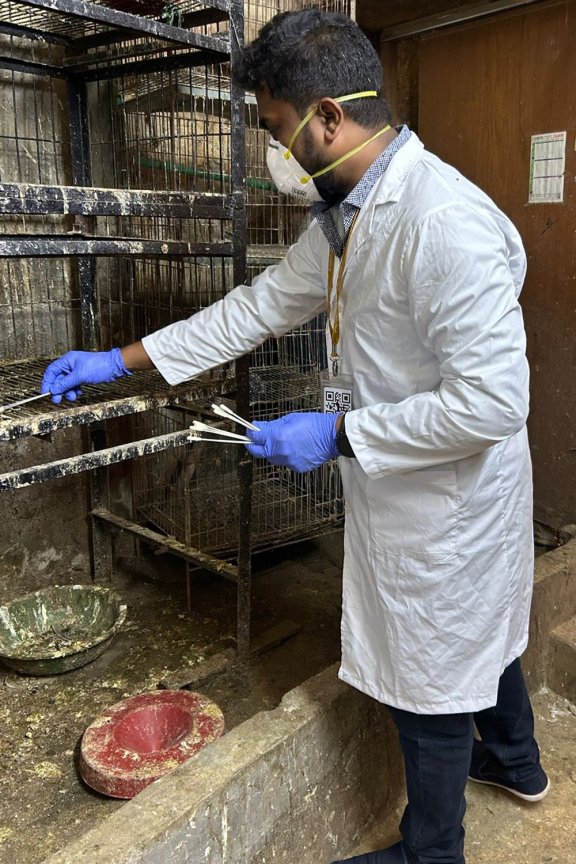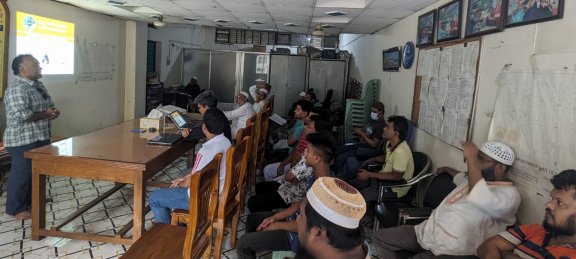
In Bangladesh, live bird markets (LBM) are the primary source of poultry trade. The risk of avian influenza runs high in these markets given that these viruses are enzootic in poultry found in Dhaka and regulatory systems fall short of ensuring sanitary conditions for birds and their preparation. In response to this persistent issue, the STOP Spillover Bangladesh Country Team has been working to develop an app called “Socheton” (meaning “aware”), which is designed to allow users to notify health authorities of dead poultry and wild/pet birds and influenza-like illness among LBM workers. The team’s goal is for data generated through the app to be shared with national stakeholders, resulting in validity checks, outbreak investigations when warranted, and increased statewide health security.
The app works by incentivizing workers and customers to self-report data, including human flu-like symptoms and unusual avian mortality, including among birds sold at LBMs and wild birds within and around the vicinity of LBMs. The app is now in a pilot phase in two LBMs in Dhaka city. After data is reported through the app, the reports are validated through a verification process to ensure the accuracy of reported cases. Biological samples from humans, birds, and the environment are then collected onsite at LBMs and tested for avian influenza viruses. The data collected from testing samples is reported to the Government of Bangladesh (the Institute of Epidemiology Disease Control and Research—IEDCR), the Department of Livestock Services (DLS), and the Bangladesh Forest Department (BFD). By detecting sources of avian influenza illness in birds and humans early, it is possible to mitigate the spread of disease.

Although the app was designed to track avian influenza reports, it has been customized for reporting other communicable diseases. Because of this customizable structure, the application holds many possibilities for use in detecting other diseases at the animal-human interface in Bangladesh and elsewhere.
Currently, the team is working with a private company to finish optimizing the app for various phone operating systems. The app has been successfully designed and piloted for Android operating systems, and an iOS version is now in the development phase. Because not all those residing in Bangladesh can afford a smartphone, the users of push-button mobile phones can send reports via text messaging.
Functionality, feasibility, and acceptability assessments of the app have yet to be explored, but LBM workers and consumers are testing the app to ensure a streamlined process of reporting, and the team is continuously resolving issues that arise. Posters in Bengali and English with instructions on how to use the app have been created for use in two pilot markets, and user manuals in English and Bangla have been created for distribution to shops in the pilot markets. The posters and user manuals are also available to download for free and can be accessed through the app. Through these efforts to create an effective and more accessible method of reporting zoonotic disease, spillover events can be identified earlier in and around LBMs for prompt action by authorities.
The app was designed in collaboration with the One Health Secretariat, DLS, IEDCR, BFD, and the Dhaka North City Corporation. Other significant contributors to the project are Daniel Otzoy Garcia (JSI), Liz Gold (JSI), and Jonathon Gass (Tufts).
